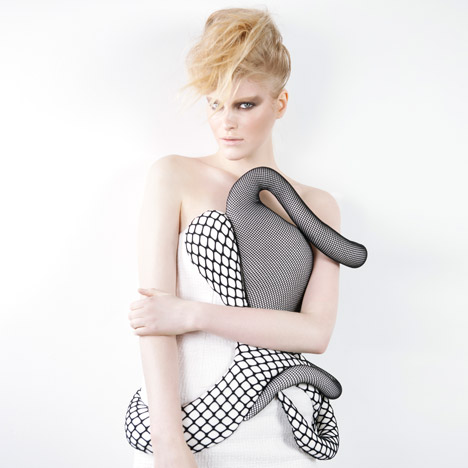
Autumn Winter 2013 collection by Sylvio Giardina
Bulging fabric sausages constrict the outfits in Italian fashion designer Sylvio Giardina's Autumn Winter 2013 collection, shown a few days ago during Paris Fashion Week.
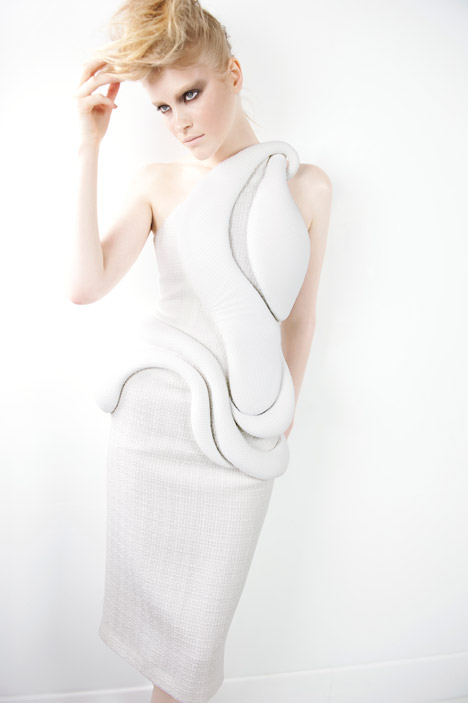
Giardina's monochrome garments are embellished with mounds of fabric that entwine around the body and loop over shoulders like tentacles.
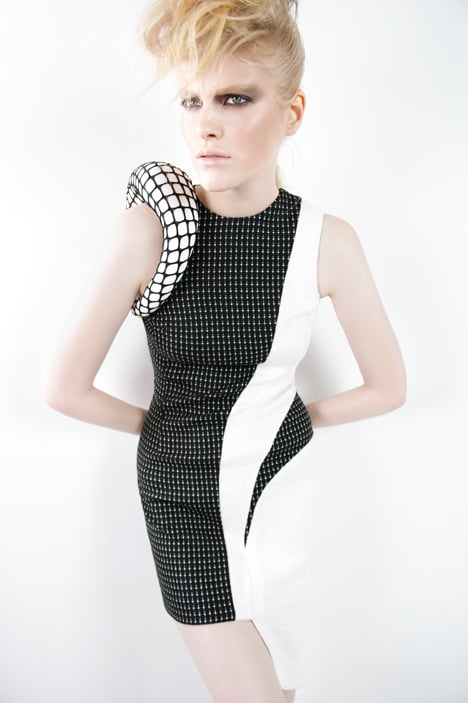
Heavily textured, traditional materials such as tweed are stitched to modern neoprene to form abstract shapes.
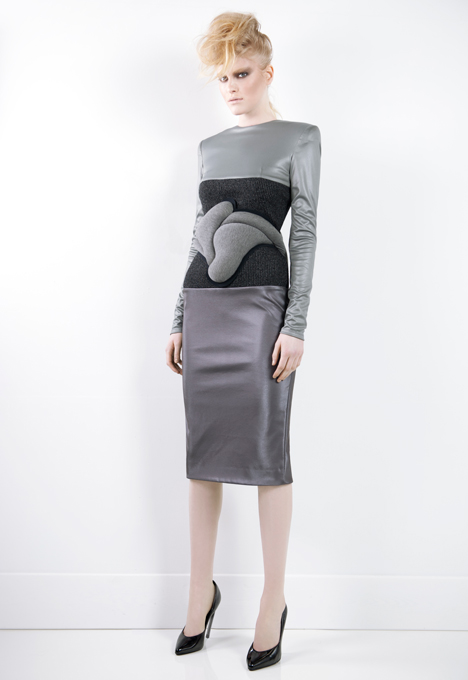
High necklines and pencil skirts evoke shapes from the 1950s but materials such as mesh and PVC create a more futuristic look.
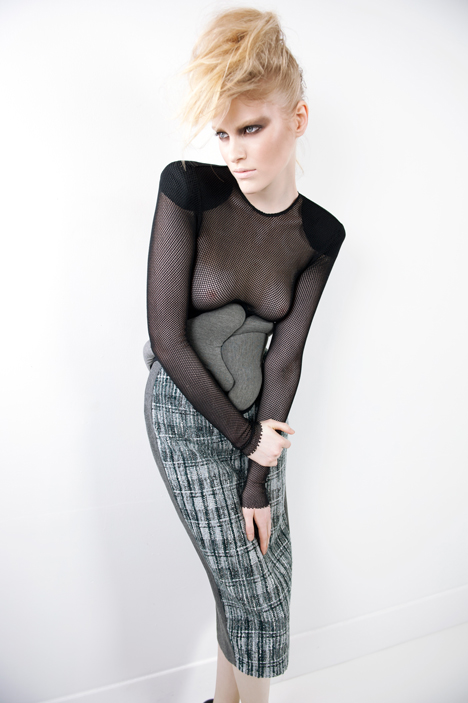
Different weaves of mesh are used for sleeves, across the shoulders and for a whole top in one instance.
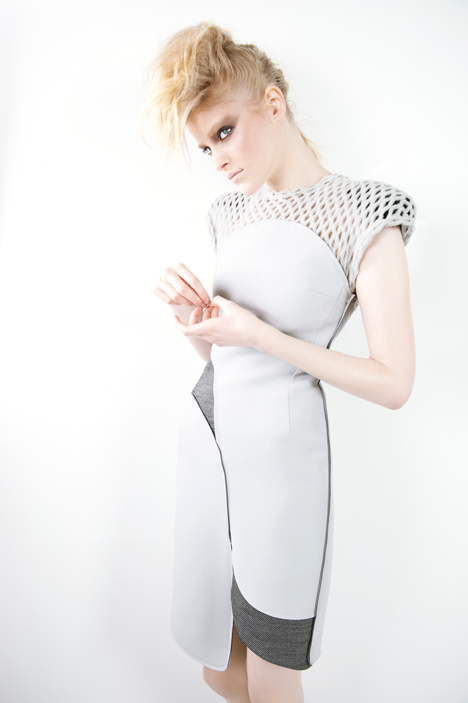
Many outfits combine a variety of sheens, which break up the grey tones.
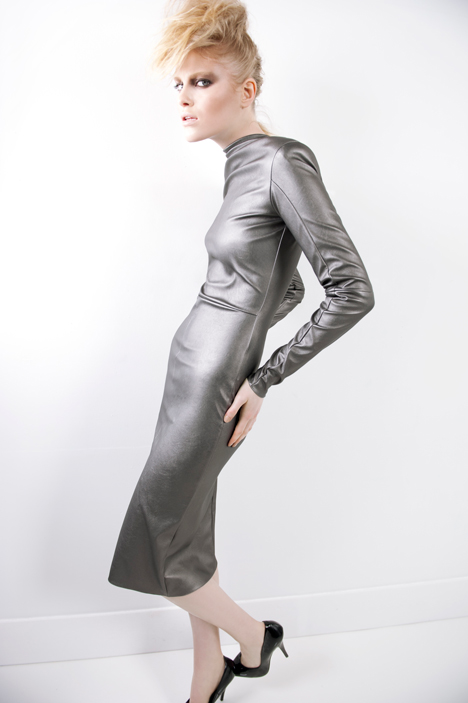
Inspiration for the collection came from the soundtrack of the 1983 film The Hunger starring David Bowie, whose retrospective will go on show at London's V&A museum later this month and album artwork we wrote about earlier this year.
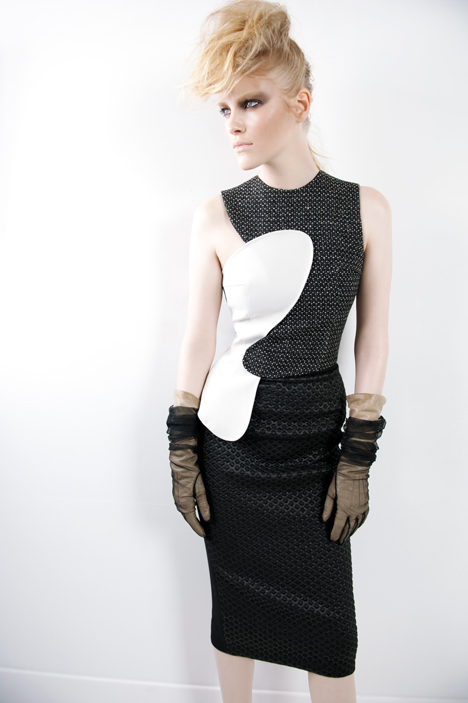
Autumn Winter 2013 collections we've already featured include garments adorned with bridge truss patterns, oversized knitwear and wooden clothes.
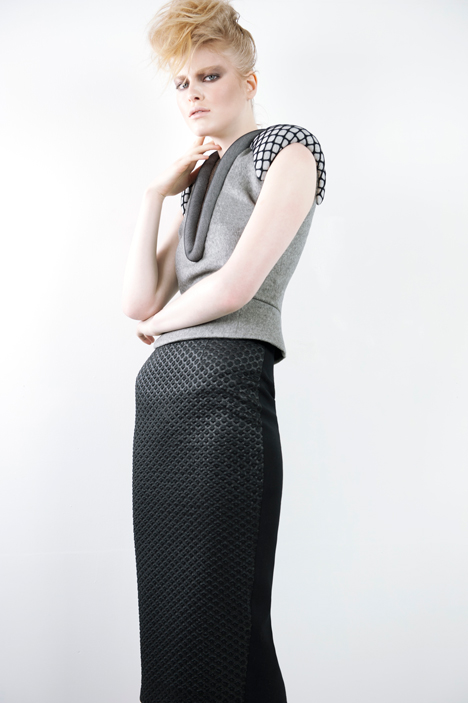
See more stories about Autumn Winter 2013 fashion collections »
See all our stories about fashion »
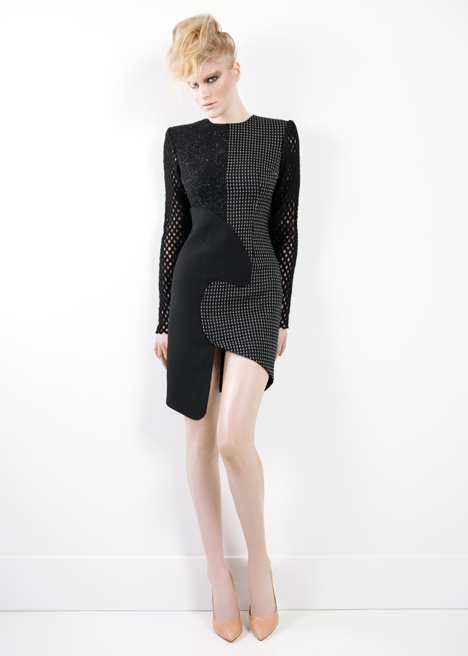
Photographs are by Severine Queyras.
Read on for more information from the designer:
The melody of Leo Delibes’ Lakmè opera acts as a background to the eternal seduction game in the movie “The Hunger”, where sensuality properly merges with dark atmospheres.
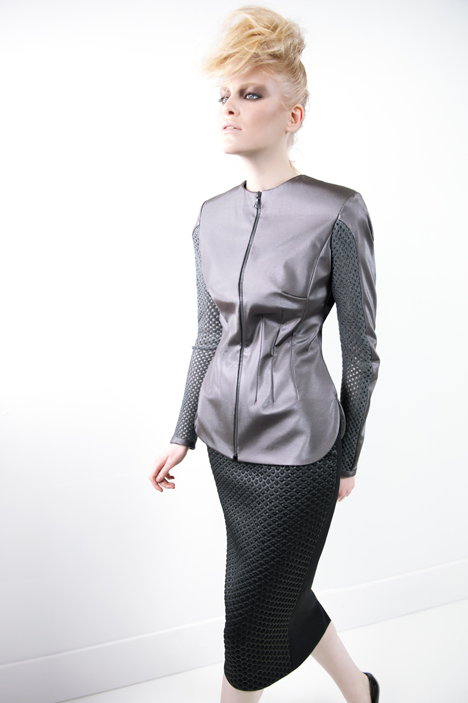
The new collection by Sylvio Giardina draws its inspiration from the density of this emotional and narrative context and from the proportions unique to the style codes of the 40’s and 50’s fashion.
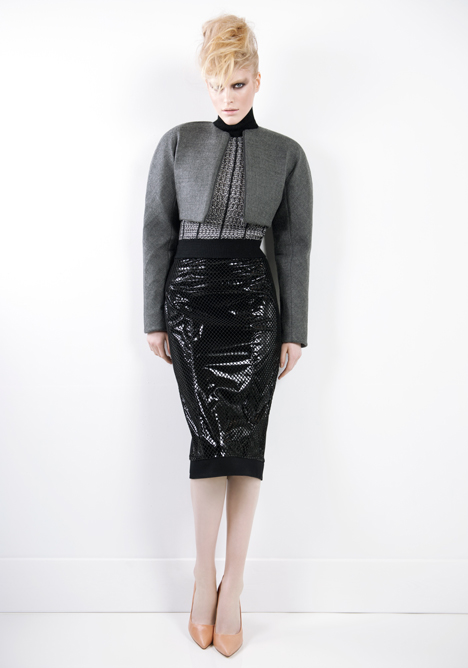
Entirely played on the harmonious fusion of iconic and artful classic references and of edgy and subtly provocative formal solutions, the new pieces combine classic and sartorial textiles – such as tweed and gabardine – with materials and codes typically associated with fetish clothing (vinyl, mesh, neoprene).
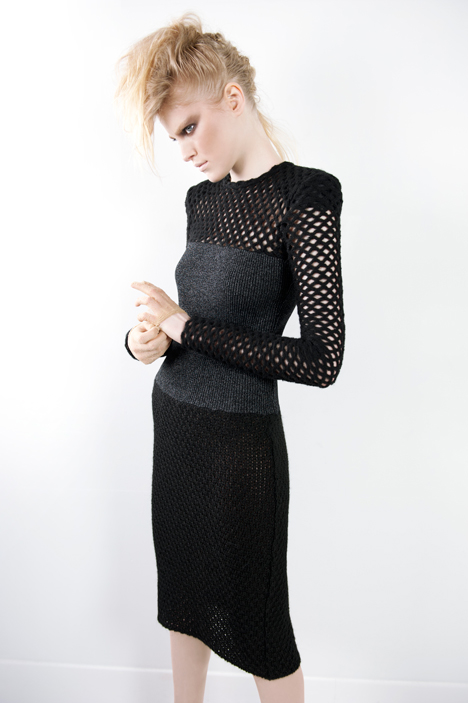
An astonishing mixture of contrasting inputs and suggestions, which inevitably enraptures the sight inside a sophisticated voyeuristic trap.
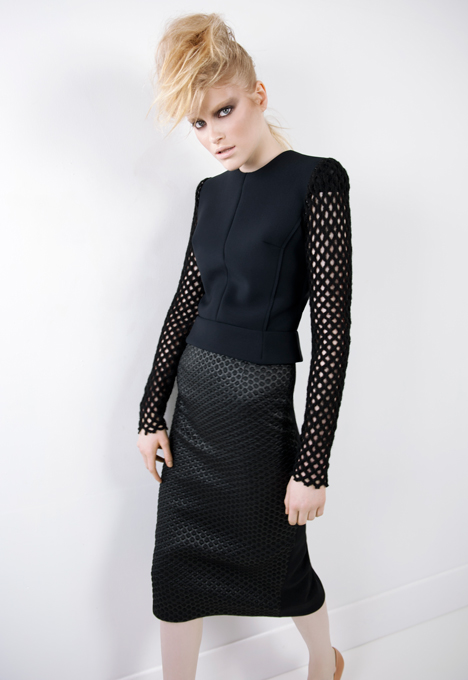
If mesh, as in the bondage practices, follows the contours of the body, partially revealing it, emphasising cleavage and indulging in the new shoulder proportions, on the opposite, the typically mannish wools cover, in a tight-fitting manner, the silhouette, conjuring up an idea of (malicious) chastity.
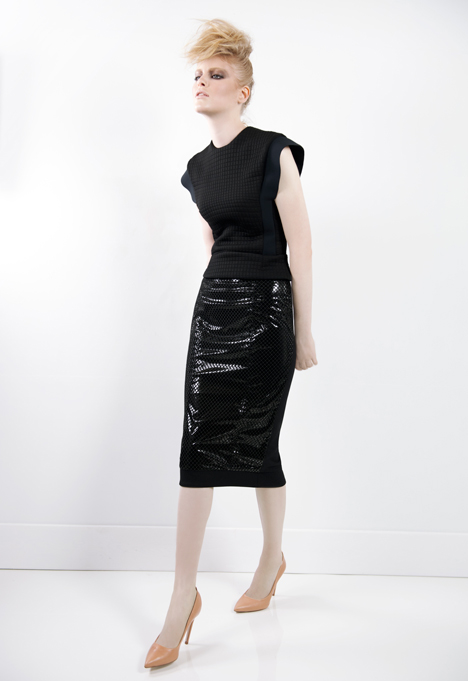
For example, skirts – although demurely elongated to the calf – cling to the body, strongly enhancing the fluidity of the sinuous line, typical of the gap, purely feminine, between waist and hips.
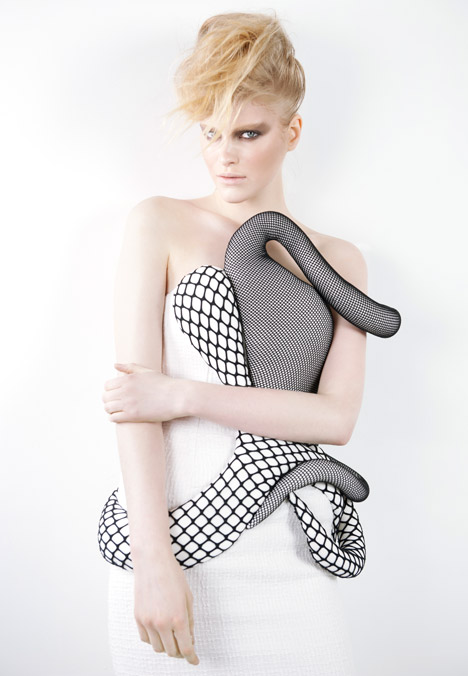
While shoulders – even if notably streamlined, important, statuesque – provide the silhouette with a more polished line and reinforce the sense of compositive eurhythmy of proportions, distinguishing each outfit of the collection.